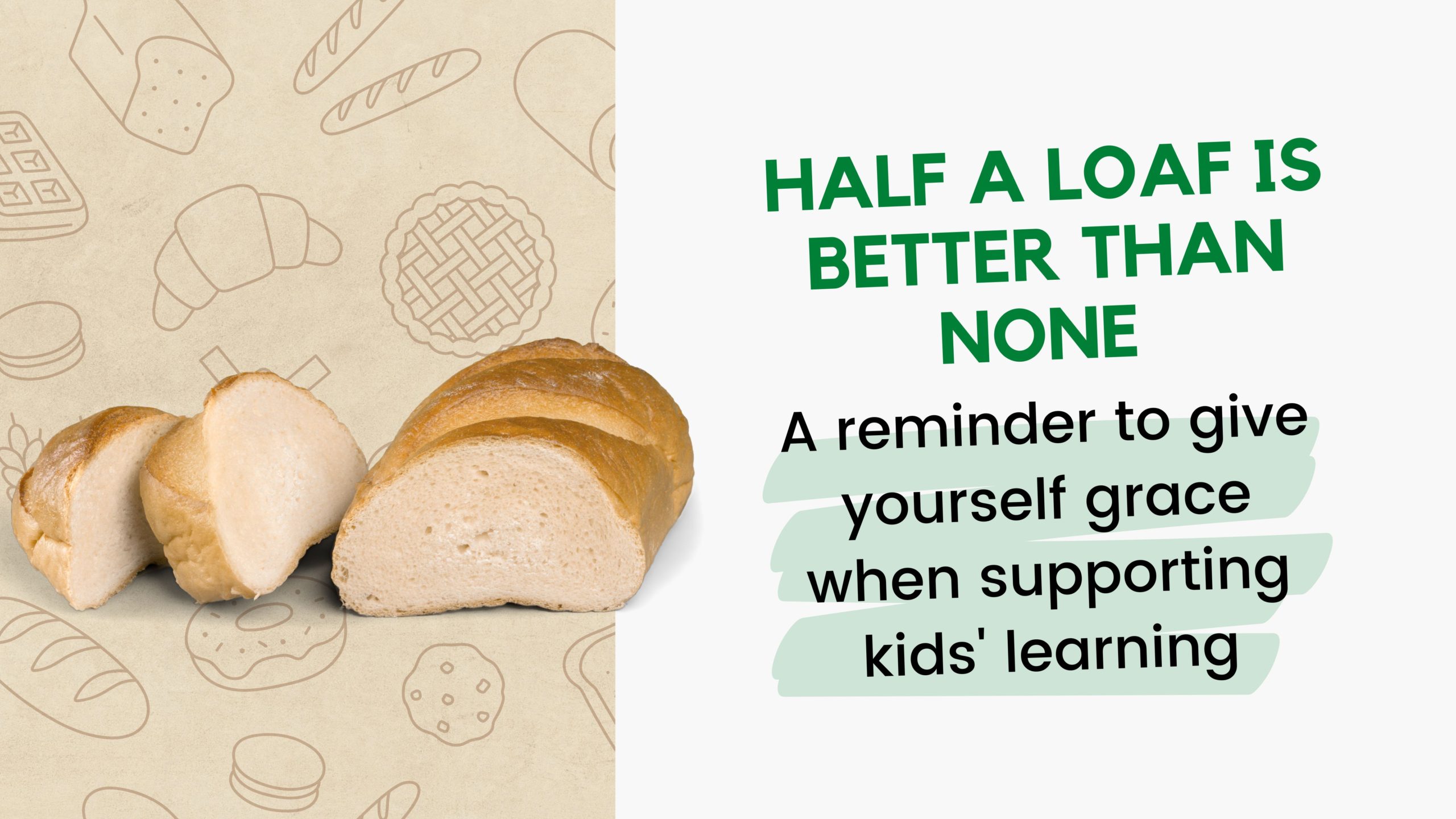Half a loaf is better than none
Back-to-school nights, messages from unfamiliar class parents, a deluge of emails from the school, unnervingly hectic mornings. Yep. Sure signs we’re in the thick of back-to-school time.
New school year, new you
Back to school is filled with excitement and expectation – almost like during the turn of an actual calendar year. It’s a grade change and parents and teachers often have to do extra duty to ramp up excitement or stave off anxieties for kids entering a new class. It’s a time when students from PreK upwards set their academic goals and social and emotional learning objectives for the year.
For parents, back to school time is often the height of zeal and renewed conviction to support your kids’ learning at home. Parenting energy is full like a gym on a January 2nd. There are plans to get the kids to watch science videos in their free time, write extra book reports and do that full 15-20 minutes of reading each night.
Success breeds success
The reality though is usually not that rosy. Sometimes, the ‘do your homework’ wars ramp up to a level you never expected from your dear baby. Battle worn, the thought of even daring to suggest anything more educational to your child is laughable. But the real funny thing is that most of the time, the reason parents give up on the lofty goals we set for supporting kids’ education is because we had lofty goals, to begin with.
No one likes to play a game they lose all the time. If your vision is that every evening little Kennedy willingly sits at the kitchen table doing additional sums beyond what is in their homework, that’s a bummer. You’ll likely never be able to achieve that. And never achieving your vision would drive almost anyone to give up.
A reminder to give yourself grace when supporting kids’ learning at home
Here’s a thought. Maybe your idea of supporting your kids’ work is unrealistic. Give yourself some grace in the criteria for success and you’re more likely to avoid falling to zero. Because we all something is better than zero right? Often that something may be doing even more benefit than we imagine.
This week, we’ve got some reminders of when to chalk up another tally mark in your success column. Even if it is not exactly what you wanted, be mindful of what the child is getting. As for the rest, in the famous words of Elsa, let it go.
Celebrate even when your child is repetitively engaged in the same educational activity
Sometimes as parents, we see opportunity costs of time where kids just see fun repetition. One parent spoke of how her child was enamored with the letter V song on abcmouse.com. For the life of her, she couldn’t get the child to listen to any of the other alphabet songs. This child became an expert in all things letter V but not so much the other 25 other letters. This is a classic case of when to shift our expectations and chalk this as a success. Remember, we are supplementing what they are doing at school. When they are ready, they will explore the other alphabets in their ‘free’ time.
Commend the child for doing anything that helps them learn something
You want them to sit and do a math worksheet so you’re frustrated that all they want to do is play an ‘easy’ math game. Again focus on the gratitude that they are choosing to do something that is educational at all. For all you know, that ‘easy’ thing may be teaching them more than you can fathom.
Praise your child for any amount of time spent on educational activities
So you can’t get them to read for 15 minutes a day like their grade one teacher says. Beyond 5 minutes, it is battle royale and everyone is upset and soon you stop trying to get them to read at all. Get off that sad path. Instead, celebrate that you achieved 5 minutes. There is nothing magic about 15 minutes. The teacher who suggested 15 minutes is not in your house. They don’t know your life. If you can do 5 minutes only, do 5 minutes. It is much better than zero. Those guidelines are just that, and if it doesn’t work for your family, it doesn’t.
So here’s the gist, don’t beat yourself up for not succeeding at some ideal way of supporting your child’s learning. It is a surefire way to discouragement and it may force you to give up.
What you’re able to support them to do may not be the maximum possible, but they will be doing something compared to nothing.


